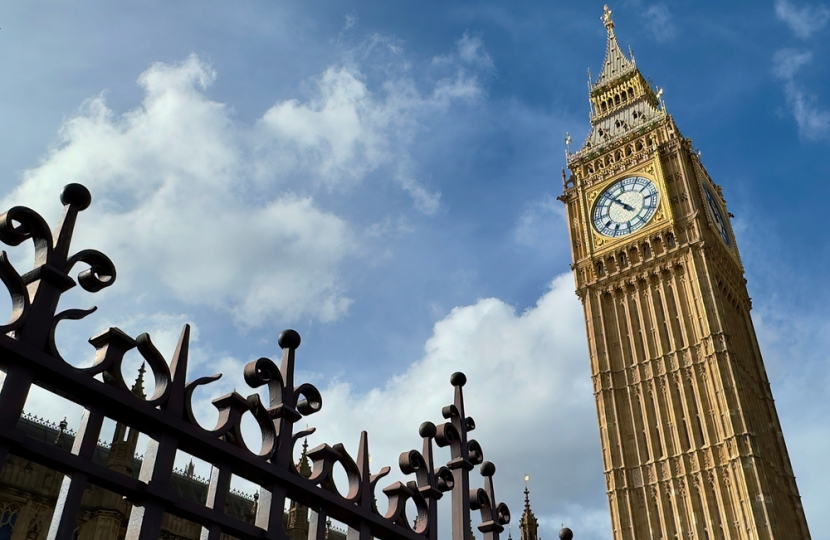
Too much of the Tory leadership debate is riddled with platitudes about broad churches and not lurching to the Right.
Listening to some of the comments made early on by would be Conservative leaders has been depressing. The same hollow phrases are being churned out about what the Conservative Party is and what it should or shouldn’t do.
Clichés abound, such as “it is a broad church”, “no lurch to the right” and – perhaps the shallowest and most hackneyed of all – “elections are won on the centre ground”. These phrases are much beloved of politicians but mean little to the voting public.
The “centre ground” is a vacuous term – it moves as political ideas move. The “centre ground” in the post war fifties and sixties was accepting of public ownership, state subsidies, Keynesian economics, union power, and even price controls. This was described as Butskellism – a merging of the names of two influential politicians, the Conservative’s Rab Butler and Labour’s Hugh Gaitskell. Conservatives at that time accepted large-scale state ownership of industry and Keynesian demand management.
Yet by the mid-eighties/early nineties the “centre ground” moved to be about privately run utilities, weaker unions and an end to state subsidies for industry. This continued after Mrs Thatcher’s premiership well into the early years of Blair’s government. The centre ground had in effect moved.
Instead of intoning the centre ground, it’s what Keith Joseph – perhaps the foremost architect of our return to power in 1979 – said in the years leading up to that victory that leadership candidates should be taking to heart. He eschewed those shallow descriptions and pointed out that it wasn’t political consensus we should seek but the common ground of people’s lives. In essence this means people’s aspirations, their hopes and their fears and importantly who in politics is most likely to champion them. Having a “broad church” is all well and good, but if that church is built where few live, then it will be empty most of the time.
It is critical that we address this now for as bad as this result is, it could still get a great deal worse.
An interesting poll from the think tank Onward bears this out. It shows how far away from the public’s, and particularly previous Conservative voters’, sense of the common ground our party has drifted.
Although there are many more areas in which we became disconnected, three critical areas in particular give us a clear picture.
The most frequent issue that concerned those who had voted Conservative in 2019 domestically was the state of the NHS. Too often when discussing this issue, we end up talking about hospitals. But for most people, most of the time, the NHS is their GP. The post pandemic and ongoing problem of trying to get a face-to-face appointment with their GP became an everyday talking point and fed an anger with the Tory government. Under the Conservatives, bureaucracy was seen to have become vast and uncaring. And for far too many this meant they clogged up A&E, sitting for hours on end in their hospital waiting rooms.
A majority of those who voted Conservative in 2019 wanted very strong action on immigration. This is particularly true of those who in 2024 went to Reform. This is no “lurch to the right” but where the vast majority of the public are – and where we Conservatives in their eyes are not. Importantly, giving a lie to this so-called lurch, a significant majority of defectors to Liberal Democrat also agree, favouring a reduction in net migration.
It is clear that whilst Reform and Liberal Democrat defectors may hold different economic and cultural beliefs, in their views on immigration they still remain close to those who remained with the Conservatives.
Finally, a key reason for why people once trusted the Conservative Party – our ability to govern competently – was destroyed by our own behaviour. Whilst Party-gate initiated this slump in public opinion, it went wider. By the time Rishi Sunak – the third Tory prime minister in as many years – stood in the rain in Downing Street to announce the election, Conservatives were seen as self-serving, dishonest and incompetent.
The election result showed that the public didn’t lurch anywhere; they sent us a simple message: we weren’t where they were and they wanted us out. However, unlike Blair’s landslide in 1997, this did not signal a view that Labour was where they were either. At just under 34 per cent of the vote, few wanted Labour.
Nothing illustrates this more than the finding that when asked whether Sunak or Starmer would make the best prime minister, the most popular answer for Liberal Democrat, Reform and non-voters was “neither”.
In 2003 I set up the Centre for Social Justice so that we at Westminster could better understand how to help the worst off in society, not by top-down policy making but by learning from those in communities who were already solving their problems. In short, going to those at the heart of their common ground and learning from them.
If Conservatives wish to be back in government, they need to realise it’s the common ground of people’s lives and aspirations we need to, in all humility, re-occupy. Otherwise, we will remain out of touch and less and less relevant.




